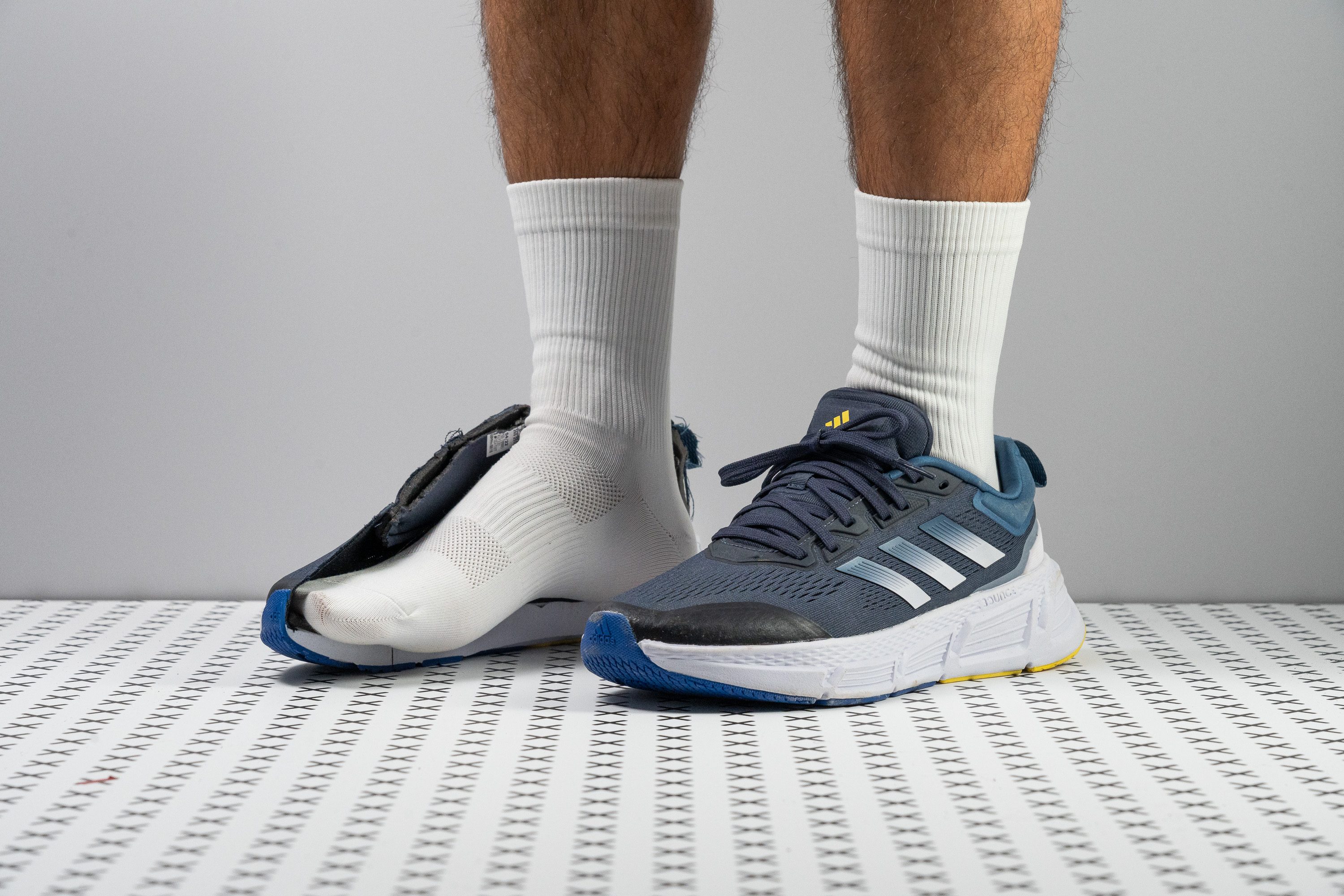Our verdict
Pros
- Comfy for recovery days
- Excellent walking shoe
- Soft upper
- Breathable for summer runs
- Perfect for beginners
- Affordable price
- Upper made with recycled plastic
Cons
- A no-no for wide feet
- Hard to put on for some
Audience verdict
Comparison
The most similar running shoes compared
+ + Add a shoe | |||||
|---|---|---|---|---|---|
| Audience score | 82 Good! | 83 Good! | 79 Good! | 81 Good! | |
| Price | £70 | £70 | £60 | £80 | |
| Pace | Daily running | Daily running | Daily running | Daily running | |
| Shock absorption | - | Moderate | Low | Low | |
| Energy return | - | Low | Low | Low | |
| Traction | - | Moderate | Moderate | Moderate | |
| Arch support | Neutral | Neutral | Neutral | Neutral | |
| Weight lab Weight brand | 10.9 oz / 310g 10.9 oz / 310g | 10.4 oz / 295g 10.8 oz / 306g | 9.1 oz / 259g 9.5 oz / 268g | 10.5 oz / 298g 9.9 oz / 280g | |
| Drop lab Drop brand | 10.5 mm 10.0 mm | 8.5 mm 5.0 mm | 9.4 mm 8.0 mm | 9.4 mm 10.0 mm | |
| Strike pattern | Heel | HeelMid/forefoot | HeelMid/forefoot | HeelMid/forefoot | |
| Size | True to size | True to size | True to size | Slightly small | |
| Midsole softness | Balanced | Balanced | Balanced | Firm | |
| Difference in midsole softness in cold | Small | Big | Small | Small | |
| Toebox durability | - | Decent | Bad | Bad | |
| Heel padding durability | - | Good | Decent | Bad | |
| Outsole durability | - | Good | Good | - | |
| Breathability | Breathable | Moderate | Breathable | Moderate | |
| Width / fit | Narrow | Medium | Medium | Medium | |
| Toebox width | - | Medium | Wide | Medium | |
| Stiffness | Stiff | Moderate | Moderate | Moderate | |
| Torsional rigidity | Stiff | Stiff | Stiff | Moderate | |
| Heel counter stiffness | Moderate | Stiff | Stiff | Moderate | |
| Heel lab Heel brand | 32.6 mm 32.0 mm | 33.5 mm 29.0 mm | 31.6 mm | 32.0 mm | |
| Forefoot lab Forefoot brand | 22.1 mm 22.0 mm | 25.0 mm 24.0 mm | 22.2 mm | 22.6 mm | |
| Widths available | Normal | Normal | NormalX-Wide | NormalWideX-Wide | |
| Orthotic friendly | ✓ | ✓ | ✓ | ✓ | |
| Season | SummerAll seasons | All seasons | SummerAll seasons | All seasons | |
| Removable insole | ✓ | ✓ | ✓ | ✓ | |
| Ranking | #555 Bottom 19% | #275 Bottom 28% | #327 Bottom 14% | #293 Bottom 23% | |
| Popularity | #576 Bottom 16% | #189 Top 50% | #326 Bottom 15% | #99 Top 26% |
Size and fit
Size
Adidas Questar fits true to size (20 votes).
Who should buy the Adidas Questar
Don't pass up on the Questar from Adidas if you're looking to buy a:
- an affordable trainer for beginners and occasional runners
- a road running shoe that's cushy for easy days, jogging, and long walks
- a breathable shoe for summer runs
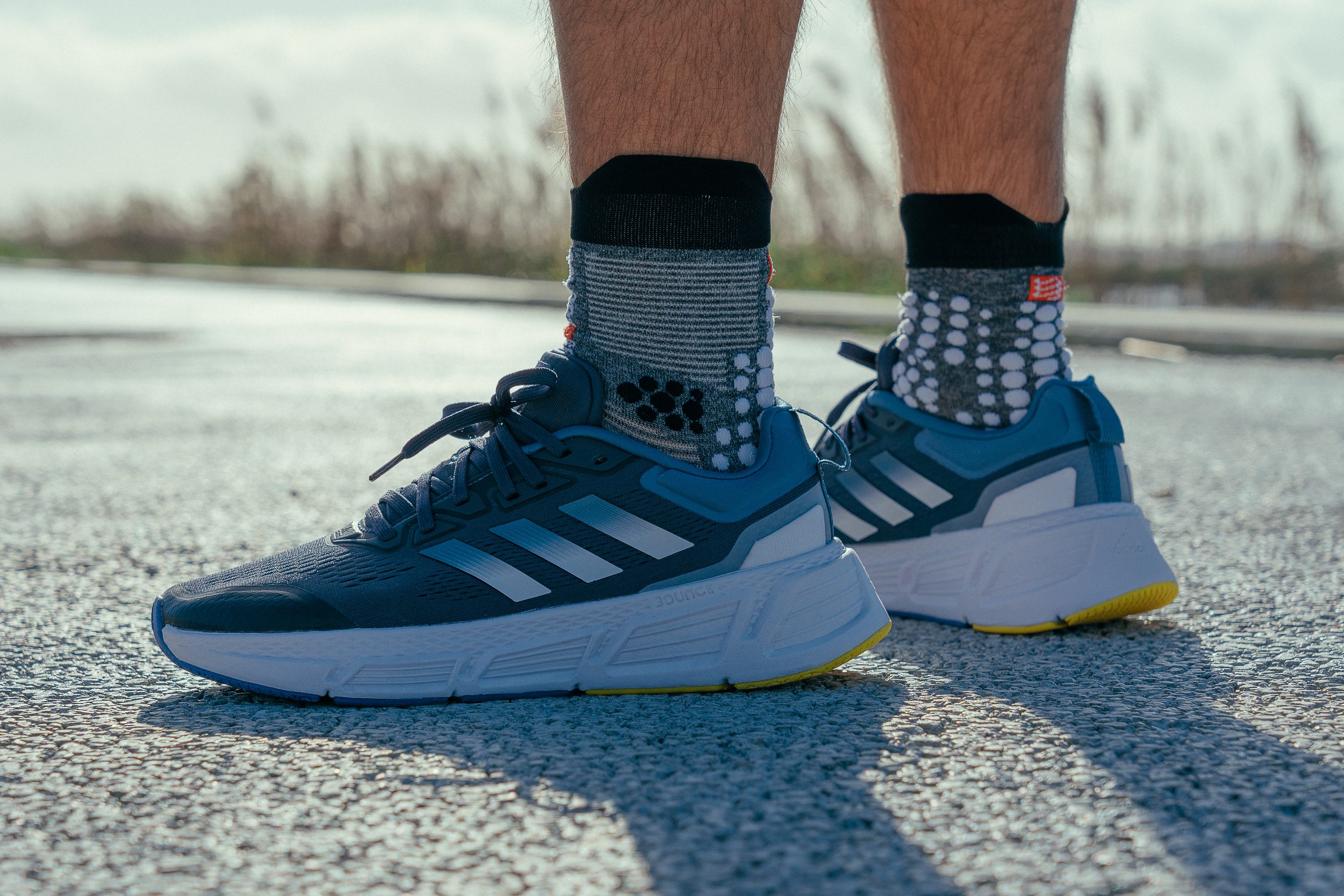
Who should NOT buy it
If you want something for tempo training, we suggest picking up the Adidas Adizero SL. It's an Adidas speedster that doesn't dig deep into the pockets. And if you're among the broad-footed runners, we're certain that the roomy Adidas Ultraboost Light won't disappoint.
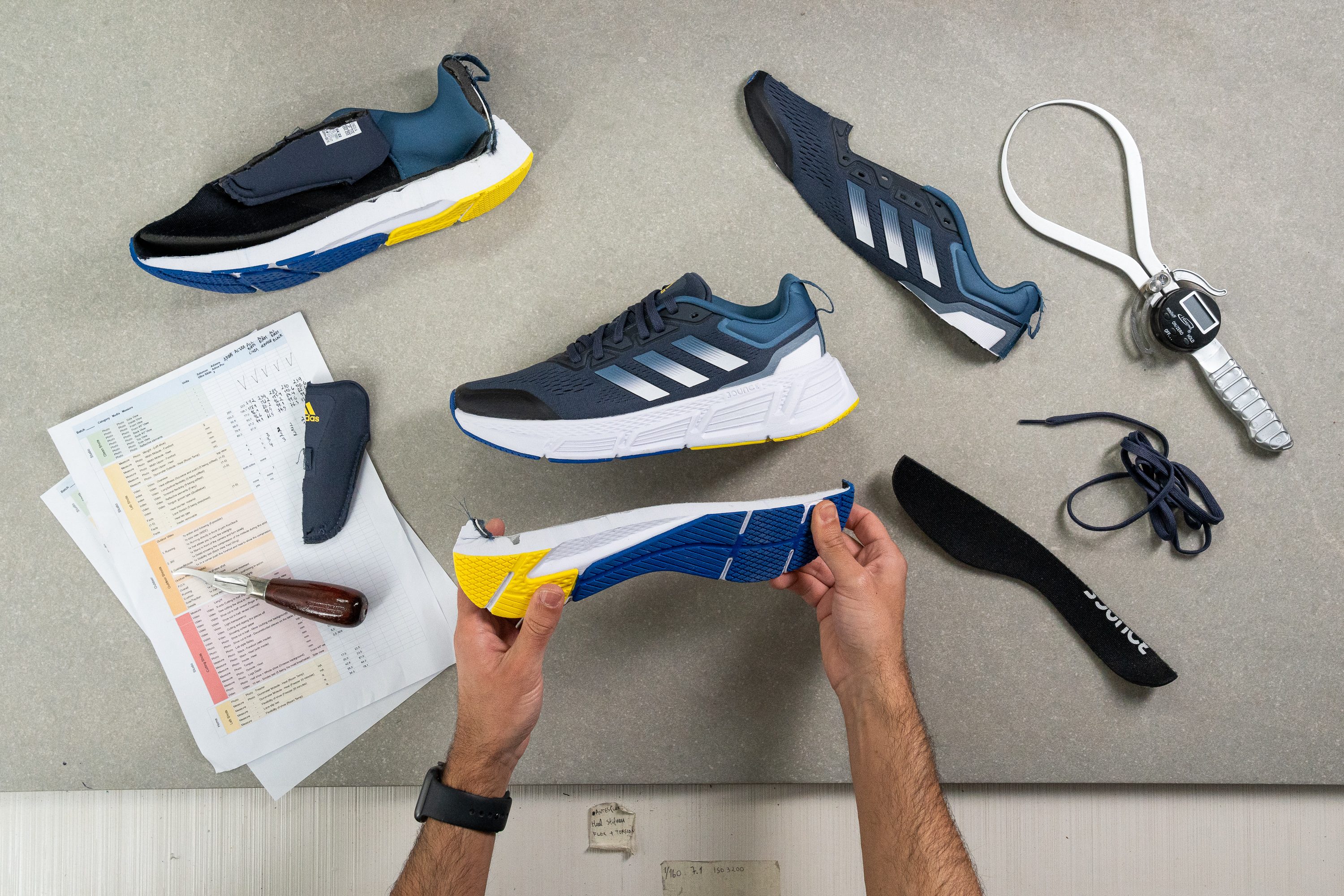
The Questar is ready to take the heat
Having logged miles under hot weather conditions, we were happy to find that the Questar is very breathable! Our feet didn't feel too sweaty or toasty which convinces us to recommend this Adidas shoe for summer.
Based on our smoke and transparency tests, this Adidas shoe receives the highest score in breathability (5 out of 5). The mesh upper material allows the heat to escape easily from the interiors.
What's surprising is that the tongue in this shoe is very thickly padded. At 8 mm, it is 2.2 mm thicker than the average.
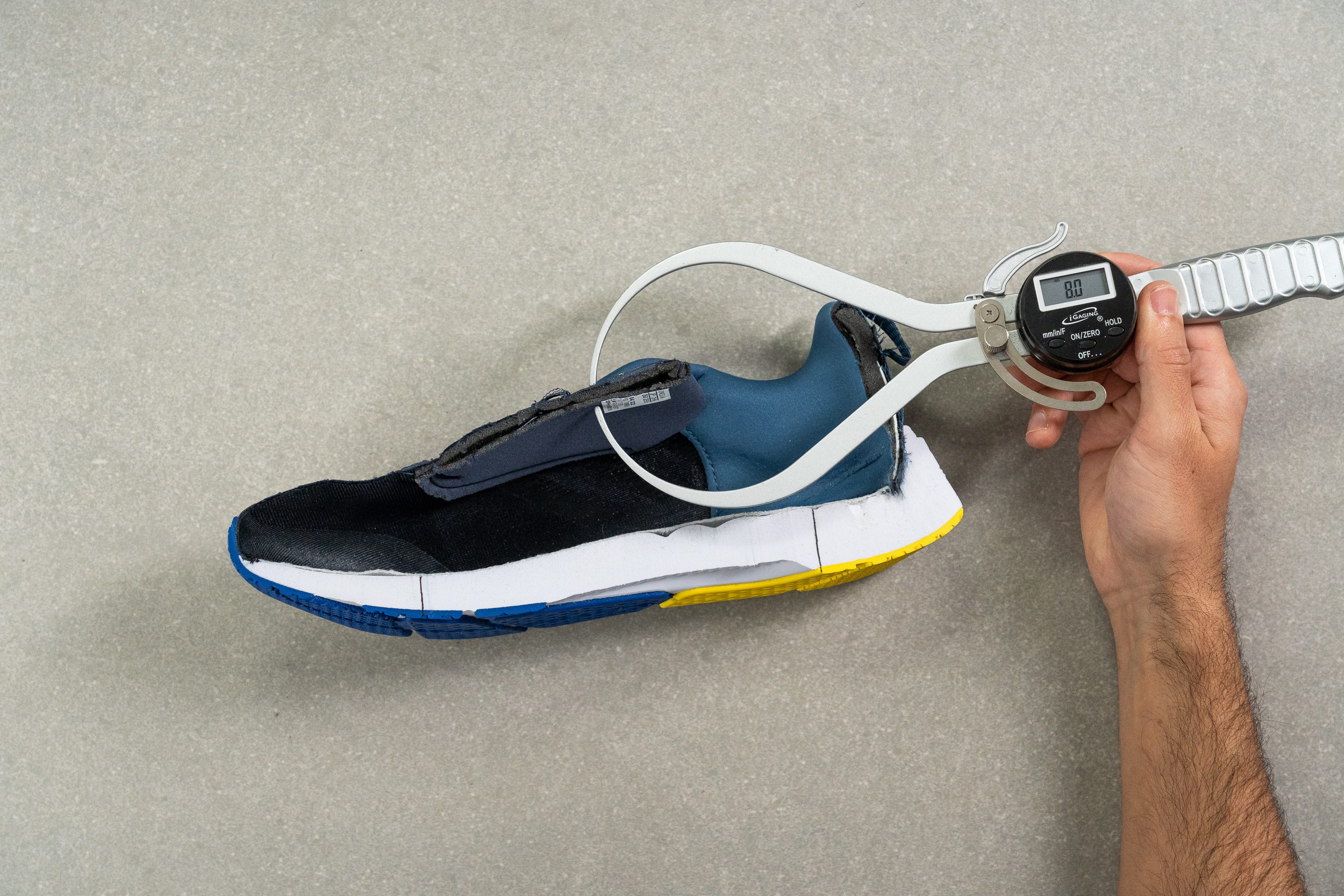
The Adidas Questar puts a pep in your step
For a cheaper-priced shoe, the Questar has a nice bit of spring and bounce in its cushioning. It is even a little reminiscent of the brand's Ultraboosts.
Checking the Questar's foam with a durometer, we got a reading of 27.9 HA. This is actually 15% firmer than road running shoes on average. And if we compare it to Adidas' signature Ultraboost Light, the Questar will be 80% firmer!
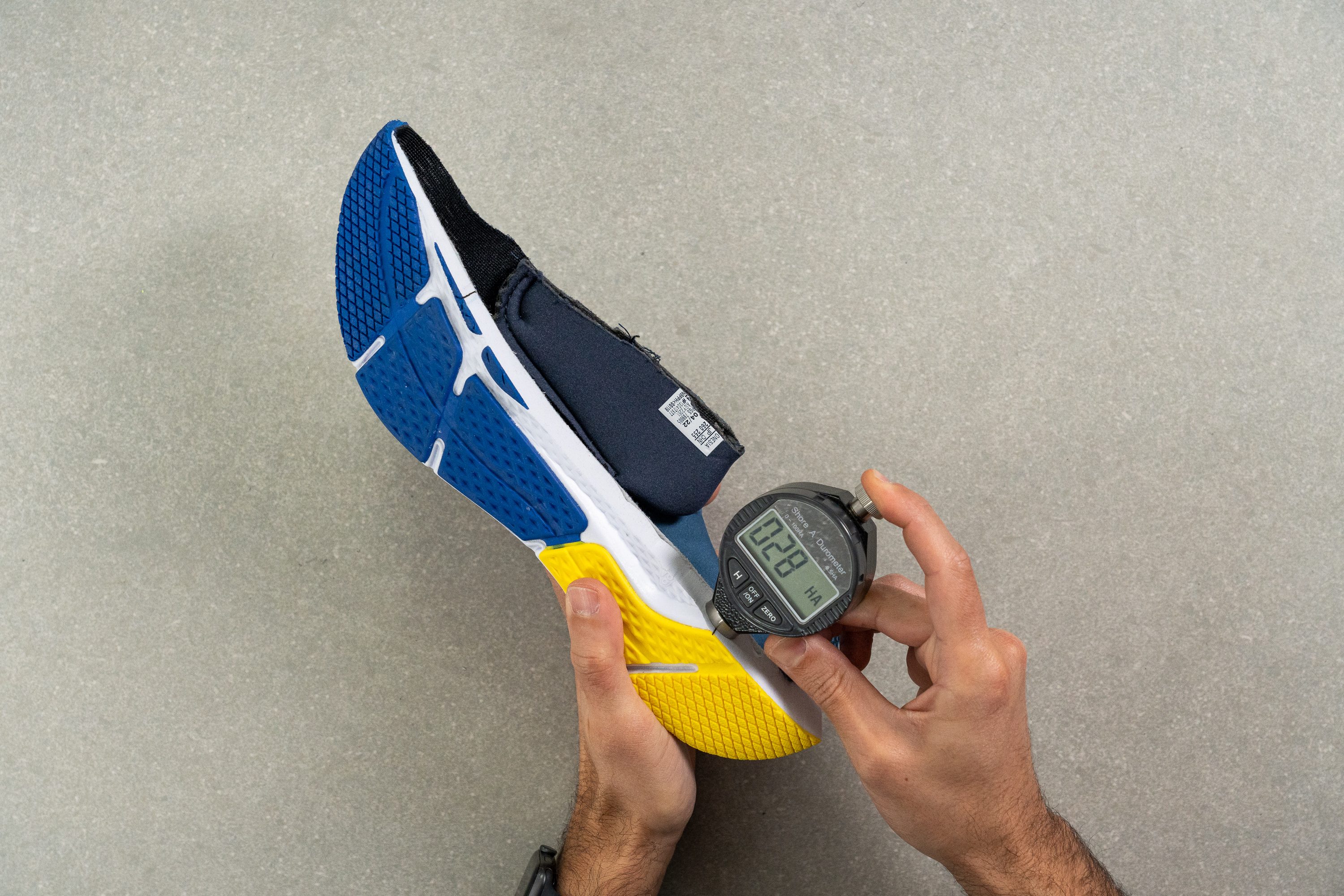
Flexibility-wise, the Adidas Questar also shows average results being moderately flexible. In the manual check, we gave it 3 out of 5 on longitudinal flexibility and 4 out of on the torsional one (a little stiffer).
Keeping achy feet at bay
Apart from the spring it offers, the shoe's cushion also provides a great deal of impact protection. This makes the Questar a better option for recovery days and long walks.
Based on our calliper measurements, this Adidas shoe has a generous heel-to-toe drop of 10.5 mm. This puts a larger stack of foam under the heel, helping to dampen the impact where the foot usually strikes first.
Also, we found that the midsole is 32.6 mm thick in the heel and 22.1 mm in the forefoot. Despite the massive look of its platform, this is actually an average stack for running shoes.
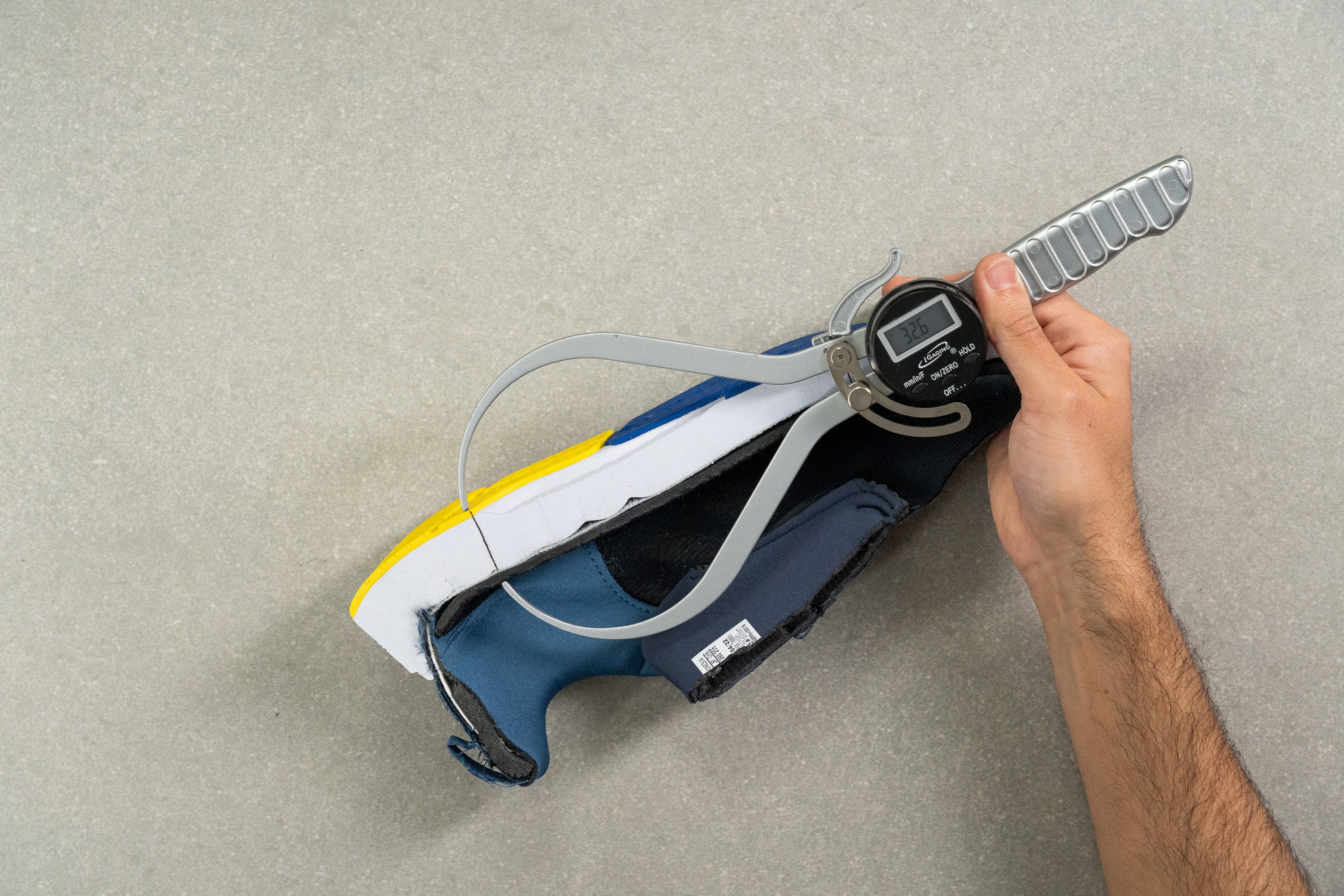

Not for fast runs
The Adidas Questar leaves a lot to be desired when it comes to responsiveness. Trying to pick up the pace in the shoe wasn't very successful or enjoyable. So if you're looking to log PBs on the pavement, this shoe won't make the cut.
Wide platform adds stability to Questar
To complement its substantial height, this Adidas shoe also comes with a significant sole width.
We measured the forefoot at 118.9 mm and the heel at 96.1 mm in their widest parts. This is 5 mm and 6 mm wider than average respectively! This makes the Questar base very close to that of the Adidas Ultraboost 22 (117.7 mm and 98.3 mm).

Feels lighter than it weighs
Tipping the scale at 10.9 oz (310g), the Adidas Questar is pretty hefty compared to the average weight of road running shoes. It is more than an ounce heavier!
But at least on the run, the shoe doesn't drag the foot down as much as we expected.
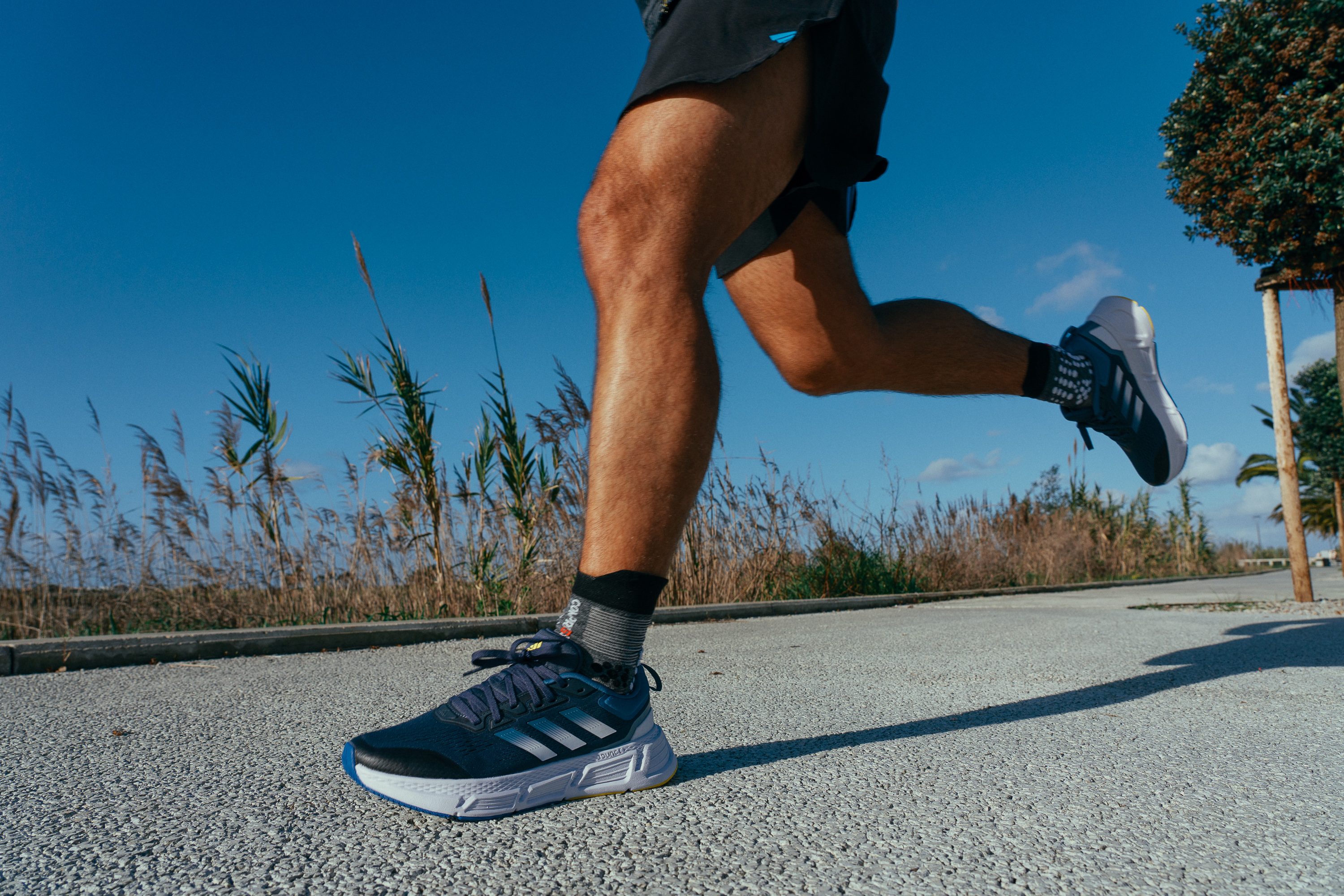
A little more room would do
This is especially true for broad-footed runners. We also think that slipping into the Adidas Questar may be hard for these folks given the shoe's sock-like wrap.
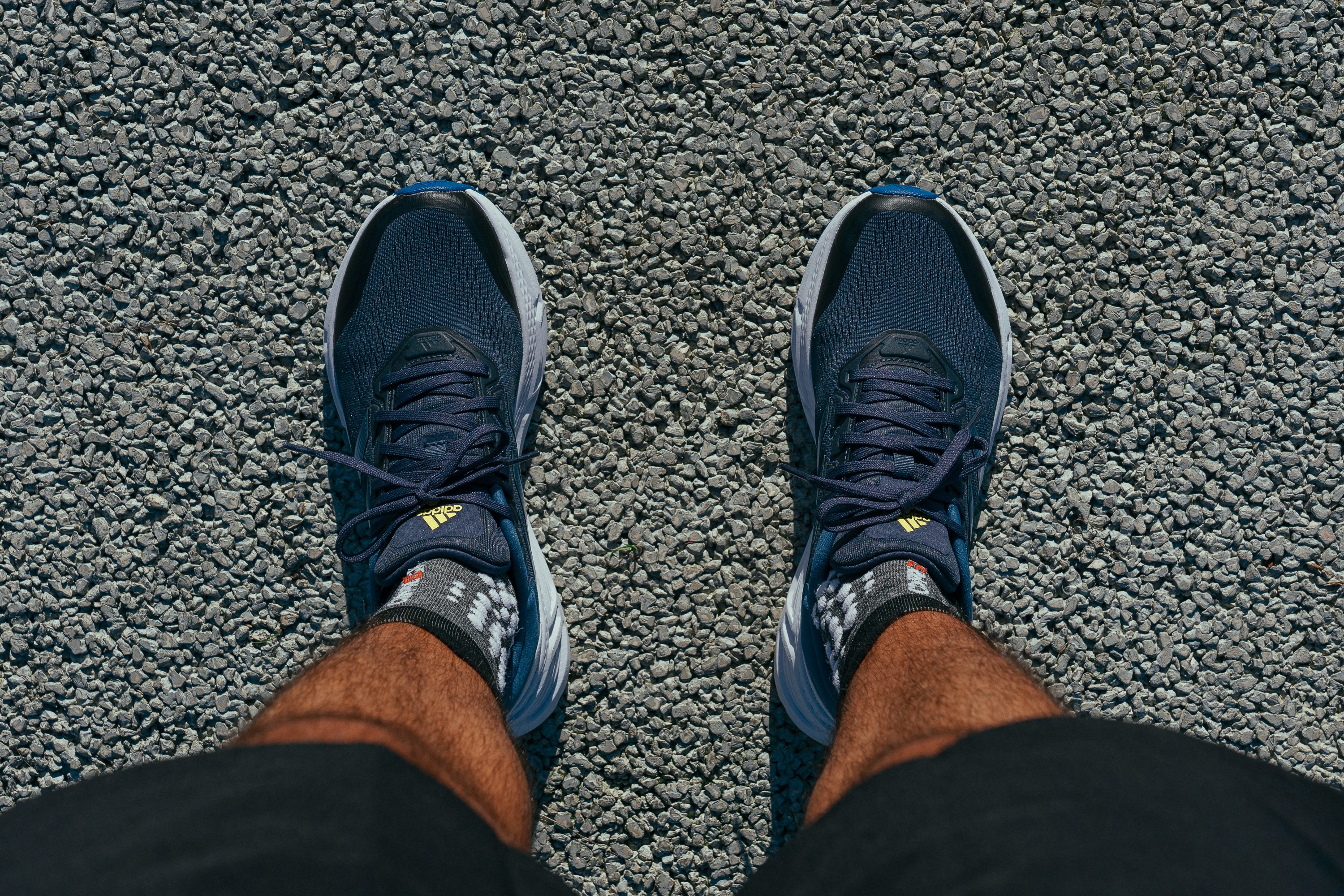
Using a calliper, we measured that in its widest part, the shoe's forefoot is 96.6 mm wide. This is 1.5 mm narrower than the average. So, people with wide-than-average feet may want to go for the wide option straight away.
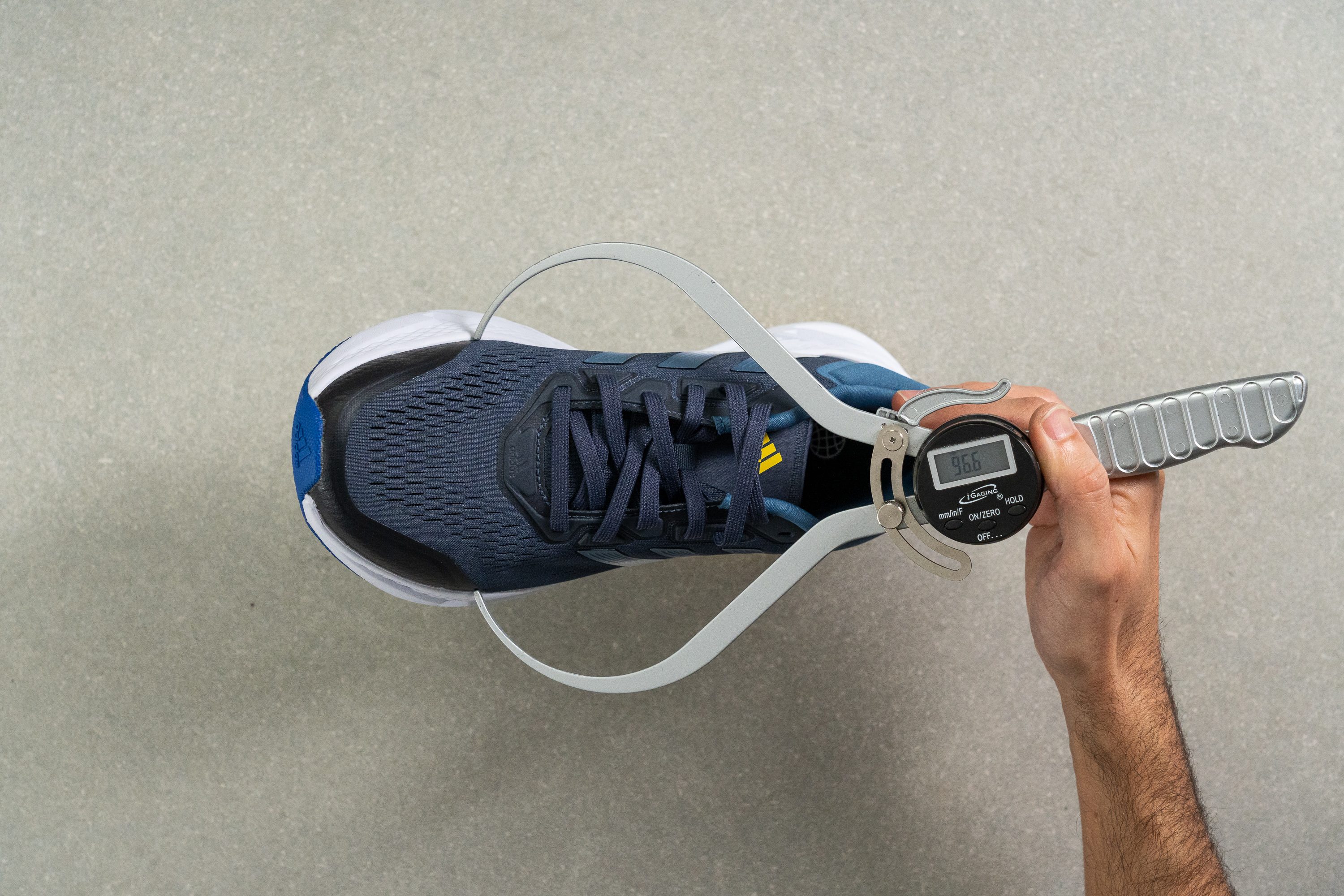
With comfort and the planet in mind
Outside of the soft foot wrap of this shoe's upper, what makes it remarkable is its eco-friendly characteristic. Made with 50% recycled content, it stays true to the brand's goal of eliminating plastic waste.
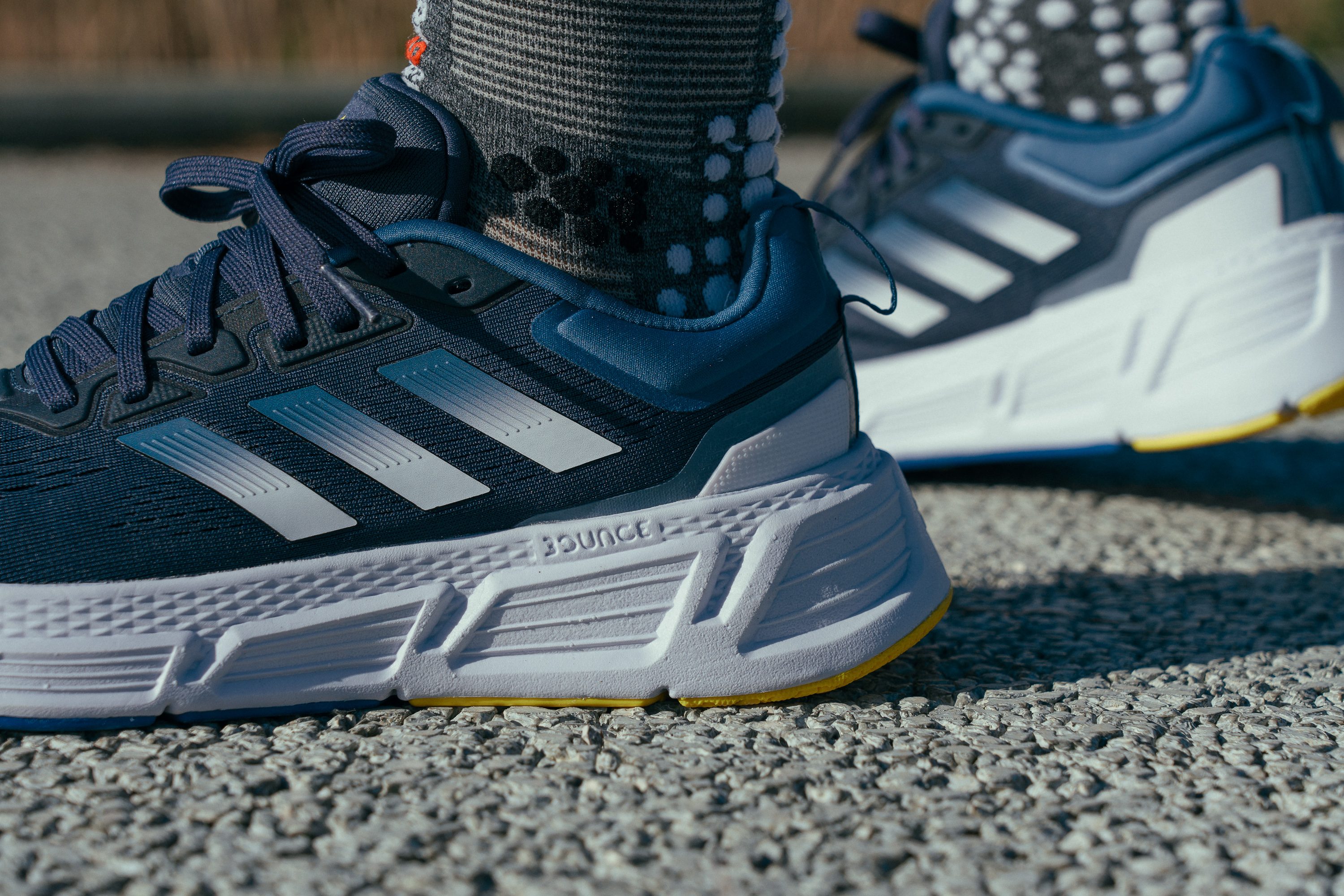
Cuts corners on costs
It only retails for £80, making it one of the most affordable Adidas road running shoes, if not one of the most affordable running shoes on the market.
For reference, the average price of daily trainers for road running is £130.
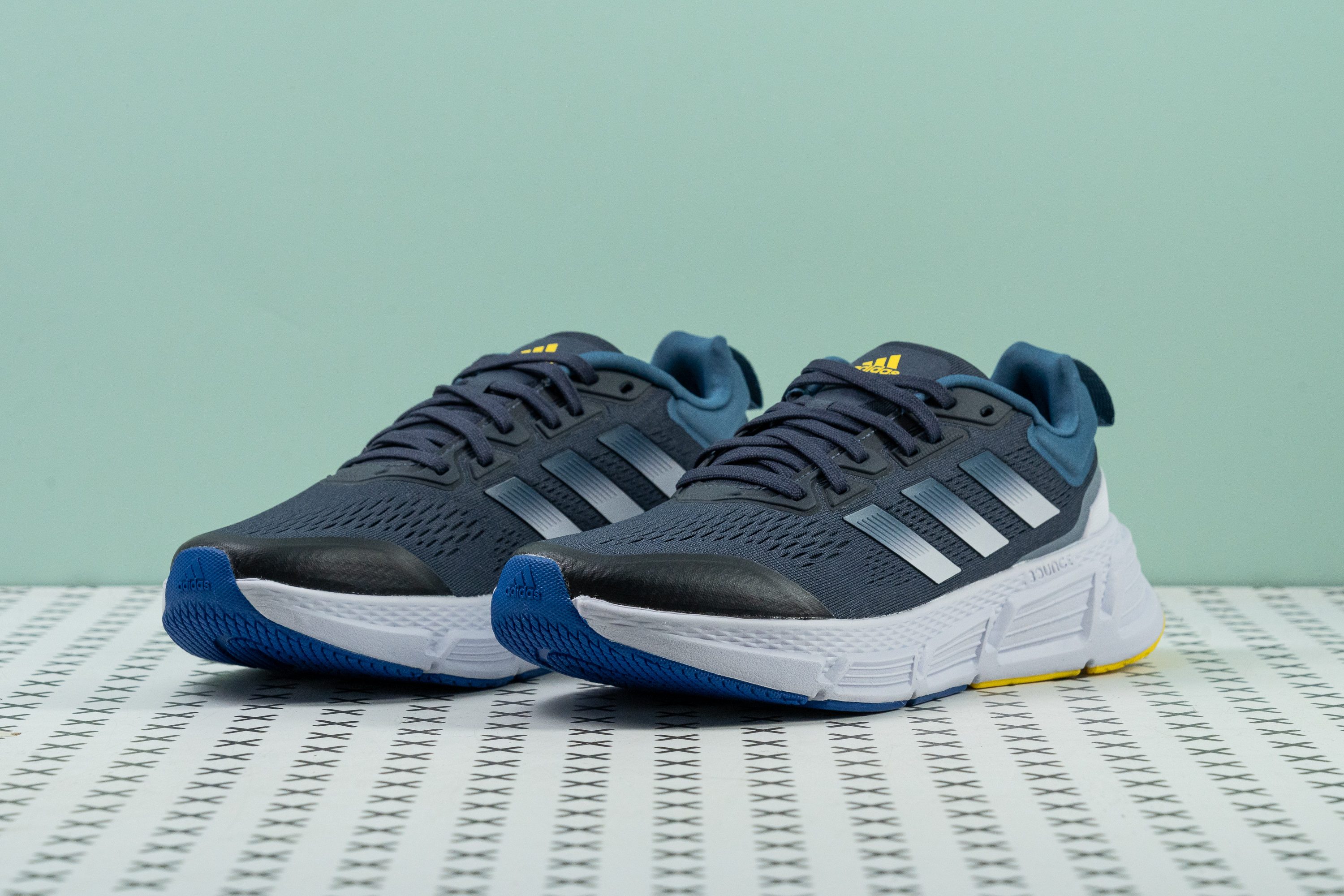
Adidas Questar has promising durability
Having run in the Questar for about 30 miles, we can conclude that the shoe has average durability based on minor wear and tear.
But we also measured two parameters that correlate with the shoe's outsole longevity.
Firstly, we measured the rubber outsole of the Questar to be 3.2 mm thick. This is a little below the average (3.5 mm) but still within the range of durable road running shoes.
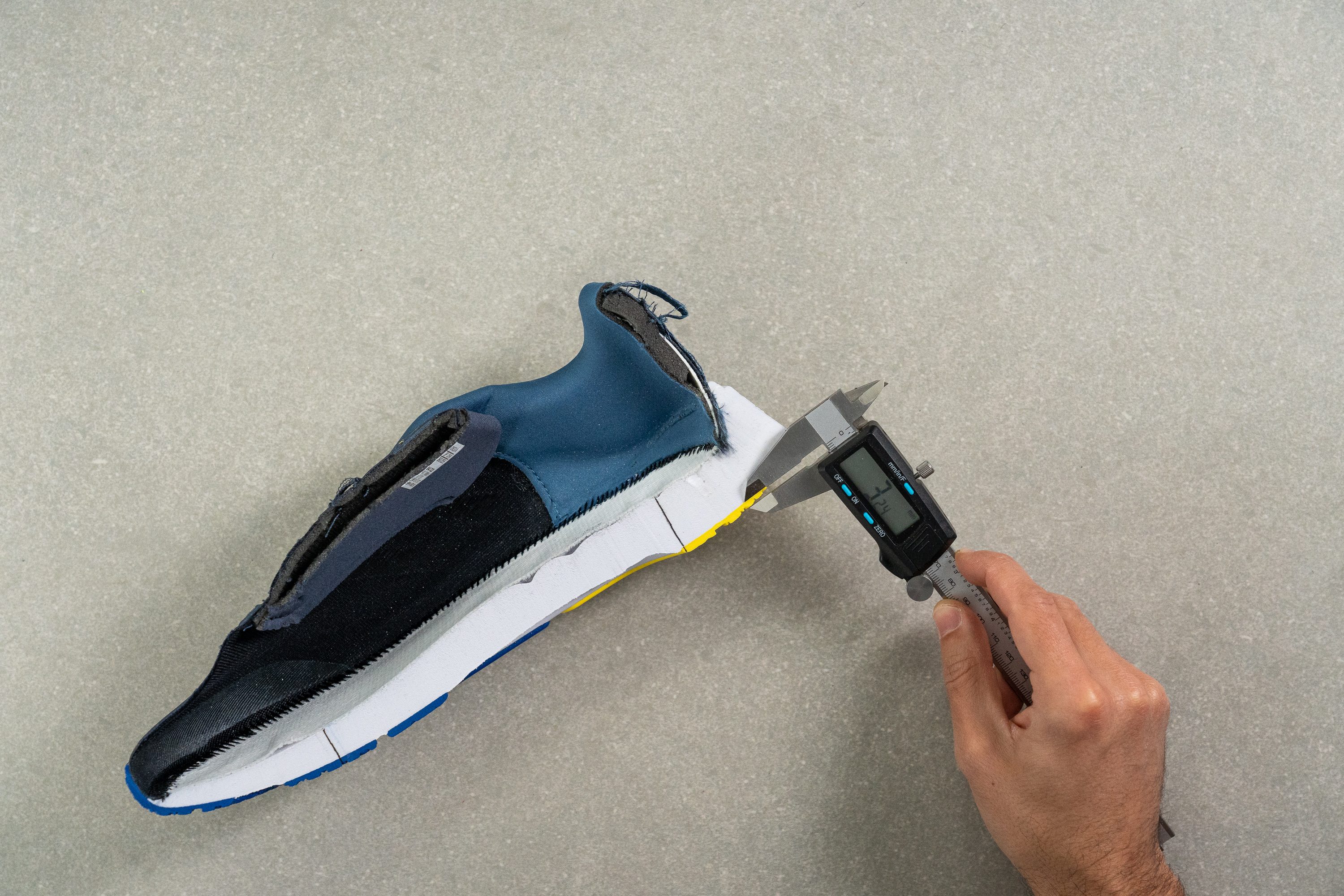
Secondly, the hardness of this rubber is also a solid average. It is even about 5%-8% firmer than other shoes in the budget-friendly category, like the Nike Downshifter 12 or the Reebok Lite 3.
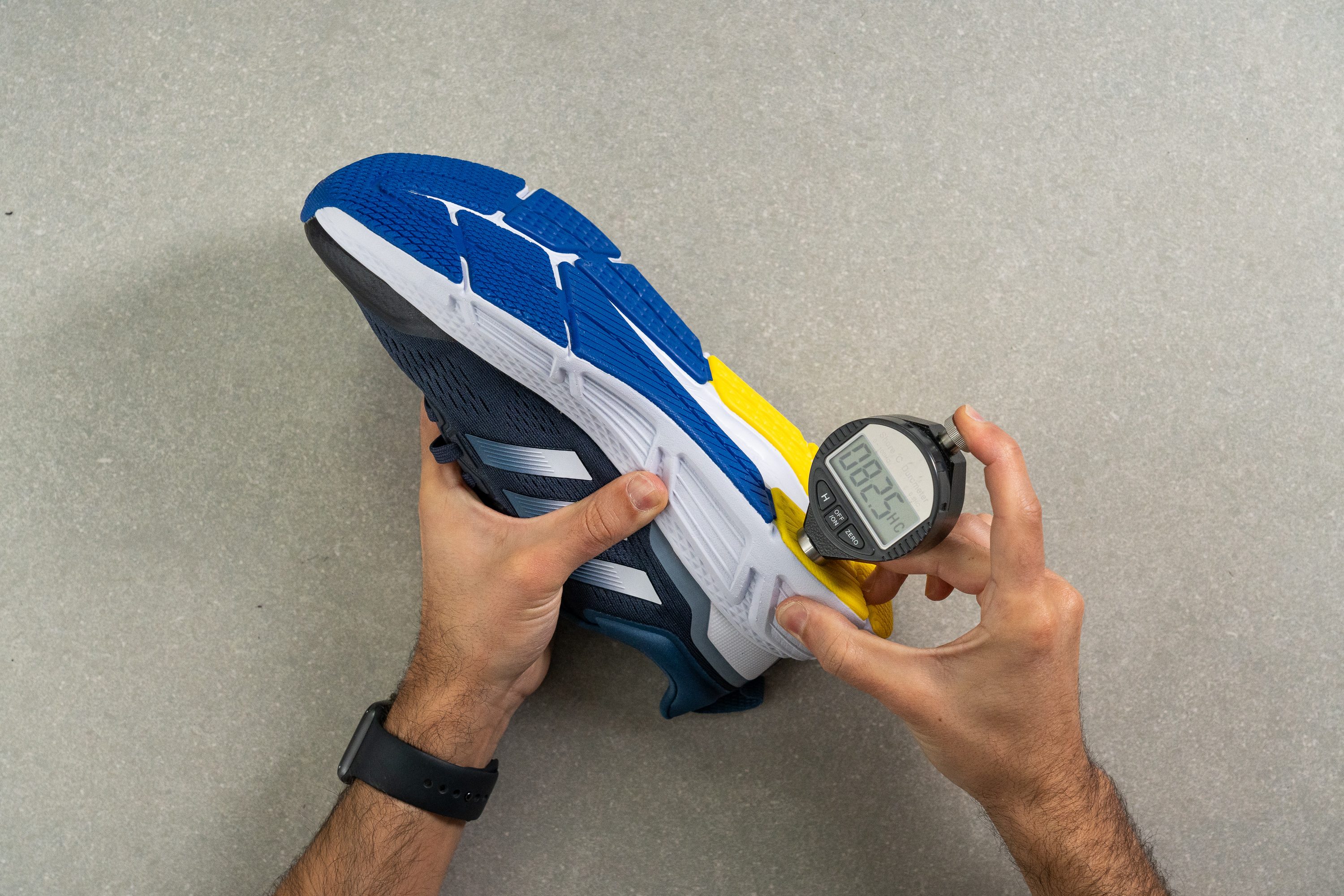
These two measurements can help to predict the shoe's longevity given how difficult it's going to be to wear through the rubber.

